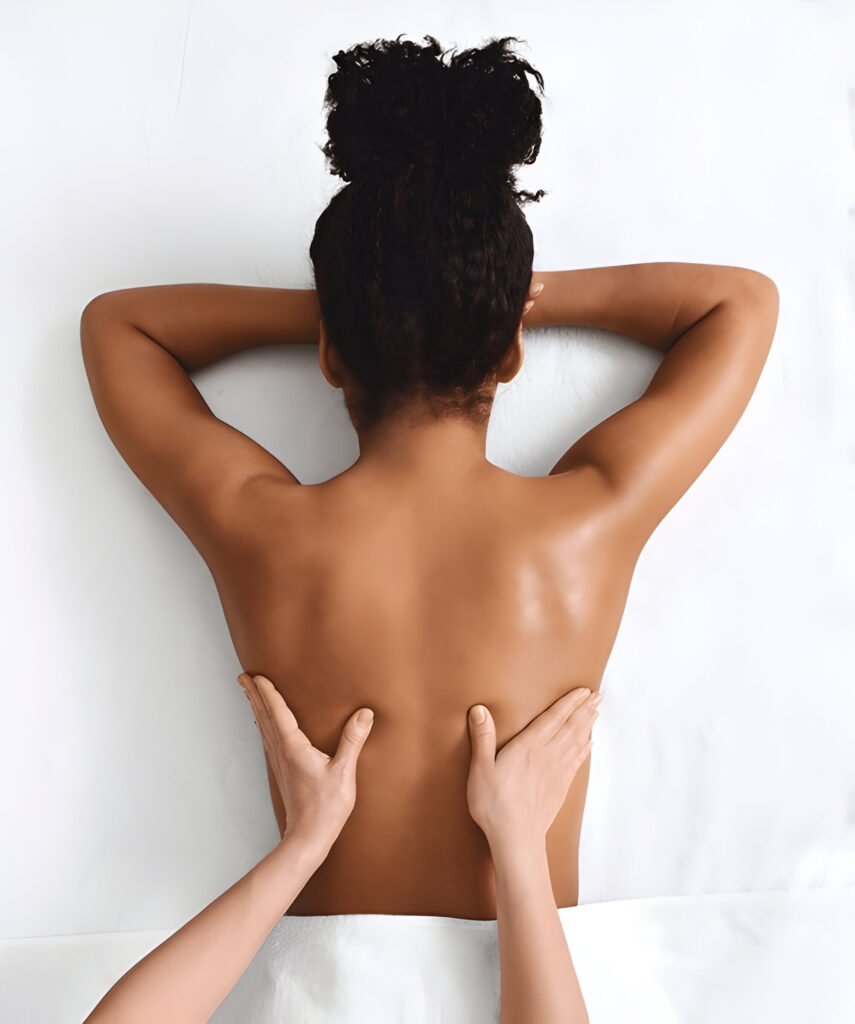
Getting a good night’s sleep is difficult in our hectic environment. Many people find it difficult to relax and slide into a deep, restful sleep between the pressures of job, family, and digital devices’ continual flood of information. Although there are many ways to improve sleep quality, massage treatment has attracted more attention for its advantages. Massage treatment provides a diverse method to enhance sleep by addressing the mind and body beyond its reputation for relaxation.
Long hailed for its ability to lower muscle tension and ease physical suffering, massage treatment Finding a comfortable posture for sleep may prove difficult when the body is stiff or painful. Massage therapists help reduce tension by using several techniques including kneading, stroking, and pressure on particular muscle regions. Apart from facilitating easier falling asleep, this bodily relaxation helps to produce a more continuous and deeper sleep cycle. Massage treatment reduces muscular tension thereby producing an ideal physical condition fit for relaxation.
Besides, the advantages of massage go beyond the physical sphere. Common offenders behind poor sleep quality are stress and anxiety, which often cause trouble falling asleep or remaining asleep all through the night. Massage therapy reduces cortisol levels, the main stress hormone in the body, so helps to manage stress. It simultaneously increases the synthesis of serotonin and dopamine, neurotransmitters linked to mood control and sensations of well-being. This biochemical change helps people to relax and find tranquility so they may move from the demands of the day to a quiet night’s rest.
Massage therapy affects the neurological system in ways that support improved sleep in addition to hormonal changes. A massage activates the parasympathetic nerve system, in charge of the body’s “rest and digest.” Often overactive in those under stress or worry, this activation opposes the sympathetic nervous system, which controls the “fight or flight” reaction. Massage therapy lowers blood pressure and slows the heart rate by increasing parasympathetic activity, therefore providing a physiologically more suitable environment for sleep. This change not only helps one 수원출장마사지 fall asleep faster but also improves the general quality of sleep by encouraging deeper and more restorative rest.
Another important factor of massage therapy’s effect on sleep is its capacity to enhance general physical condition, which encourages healthier sleep patterns by itself. Arthritis or fibromyalgia are among chronic pain disorders that can seriously interfere with sleep by creating continuous discomfort that makes it difficult to remain asleep or enter deeper sleep stages. Regular massages can help control and lessen persistent discomfort, so offering relief that converts into more regular and peaceful sleep. Moreover, massage treatment can improve circulation and help muscles eliminate metabolic waste products, therefore lowering inflammation and encouraging general physical well-being that supports better sleeping patterns.
Improving the quality of sleep also depends critically on the mental clarity and emotional equilibrium massage therapy produces. Long after the body has been physically tired, mental tiredness and emotional upheaval can keep the mind active and cause restless nights or insomnia. Massage helps people to let go of intrusive ideas and concerns by fostering mindfulness and present-moment awareness. Preparing the mind for sleep depends on this mental relaxation, which also facilitates a more seamless change into a condition of restfulness. Massage therapy offers a complete method for improving sleep quality by addressing emotional as well as physical elements.
Establishing a schedule including frequent massage treatments can also help to support good sleeping patterns. Massages scheduled consistently can tell the body when it’s time to relax and get ready for rest, therefore producing a habitual relaxation response that helps sleep. Those who have trouble establishing a steady nighttime schedule or who battle inconsistent sleep habits may find this program very helpful. Regular massage therapy sessions provide structure and predictability that assist the body’s internal clock to be stabilized, therefore encouraging more frequent and restful sleep cycles.
Moreover, massage therapy can complement other techniques meant to improve sleep quality, therefore producing a synergistic impact that increases the general advantages. Massage, for example, along with techniques such as meditation, deep breathing exercises, or aromatherapy will provide a complete approach to help with sleep. Physical relaxation, mental serenity, and sensory stimulation used together will solve several aspects of sleep quality at once and offer a stronger and long-lasting answer to sleep problems. This all-encompassing strategy guarantees that people get thorough help on their path toward improved sleep.
Within the larger framework of health and wellness, massage therapy’s ability to enhance sleep quality emphasizes how closely many facets of well-being are interdependent. Sleep is not a single ability but rather is closely related to emotional balance, mental state, and physical condition. Massage therapy is a subtle yet powerful way to improve sleep quality by tackling these linked components. It acknowledges that reaching peaceful sleep calls for more than just symptom relief; it calls for a harmonic balance within the body and mind.
Ultimately, massage treatment offers a useful and multifarious way to enhance the quality of sleep. Massage treatment offers the best conditions for peaceful and undisturbed sleep by relieving physical tension, lowering stress and anxiety, adjusting the neurological system, controlling chronic pain, and encouraging mental and emotional equilibrium. For people looking for natural and all-encompassing answers to sleep problems, its whole advantages appeal. Massage therapy’s ability to improve general well-being is becoming more and more important as more people understand how important it is for better sleep in the search of a more balanced, healthy existence.